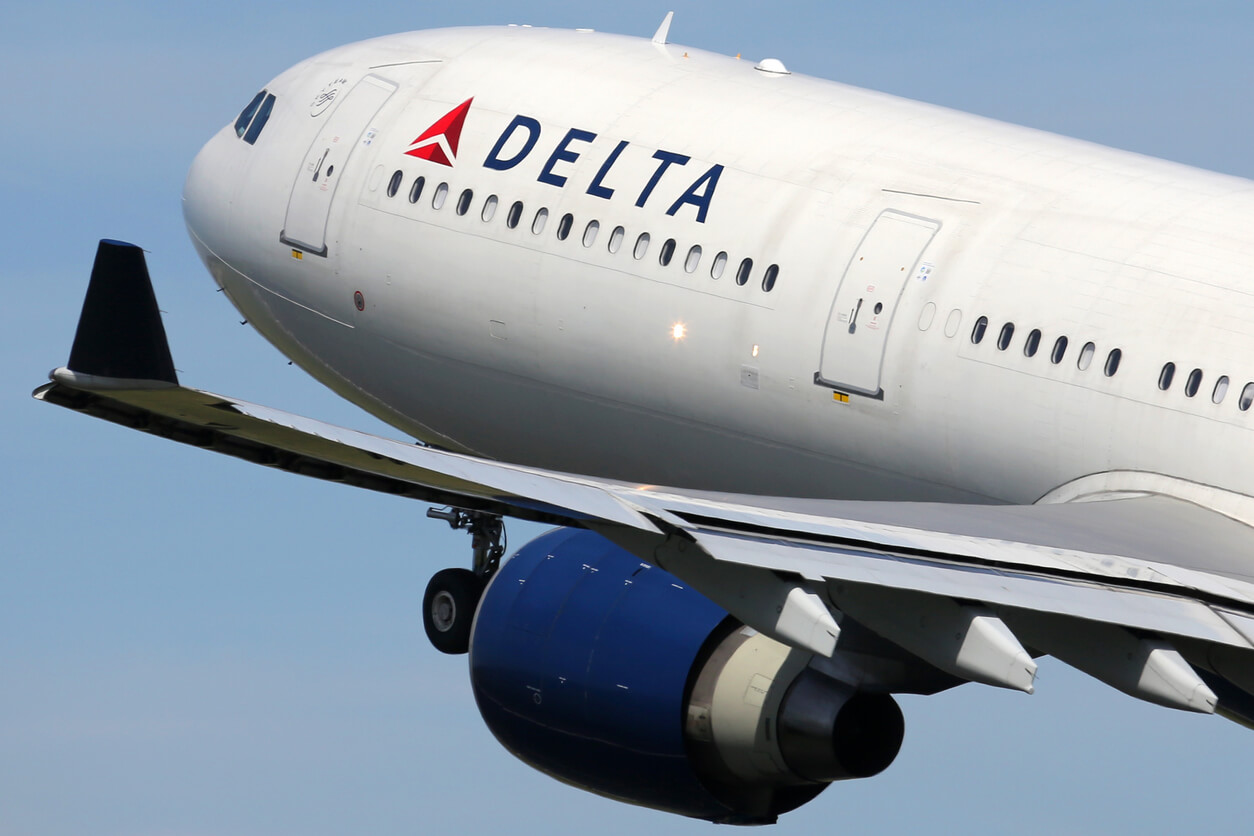Delta banned Palestinian flag pins — now flight attendants are pushing back
Delta, which instituted a new rule allowing only U.S. flag pins, is the latest airline to find itself mired in a controversy related to the Israel-Hamas war

Photo by Boarding1Now/iStockPhoto
Some Delta flight attendants are fighting for the right to wear Palestinian flag pins — and the right to not be photographed wearing them.
The pushback came after Delta instituted a new policy Monday that allows flight attendants to wear only U.S. flag pins; the policy bans all pins with flags of other countries.
The policy change follows a controversy that began last Wednesday when photos of two Delta flight attendants wearing Palestinian flag pins were shared on the social media platform X (formerly known as Twitter) by someone who called them “Hamas badges.” The official social media account for Delta responded in a comment: “I hear you as I’d be terrified as well, personally.”
Delta apologized for the comment on Thursday and said it “counseled” the employee responsible for it and removed them from the social media team. It also deleted the comment.
Whether this racist post on Delta’s X account was approved or unauthorized, Delta must apologize and take steps to educate its employees about this type of dangerous anti-Palestinian racism. Bigotry against Palestinian-Americans is absolutely out of control in workplaces and at… pic.twitter.com/3wezN6W8iN
— CAIR National (@CAIRNational) July 10, 2024
In a Thursday letter to Delta CEO Ed Bastian, a group of Delta flight attendants asked for protections against being photographed and recorded by passengers, calling it “non-consensual” and “harassment.”
After the pin policy change was announced this week, some flight attendants started an online petition saying the ban “not only violates Delta’s commitment to inclusivity, but also creates a chilling effect on any worker or passenger deemed ‘not American enough’ by a hateful few. This sets a dangerous precedent that is both dehumanizing and harmful to Delta’s reputation and ability to do business both here and around the world.”
The petition asks Delta to retract the new policy. “Our pins are not the problem,” they wrote. “Harassment, and Delta’s failure to stop it, are the problems.”
A Delta spokesperson said that the new policy instituted Monday should reduce harassment and create a “welcoming environment for all.”
Delta flight attendants are not part of a union, and voted against previous attempts to unionize. The Association of Flight Attendants, which is helping organize the flag pin petition, is trying to change that. The AFA also represents flight attendants on United and Spirit, among other airlines.
The rule surrounding flag pins is in addition to Delta’s existing policy for flight attendants, which prohibits wearing — in work areas or during work time — any “buttons, tags or any clothing that conveys a message or advocates a position or cause.” There is an exception for those wanting to wear pins related to Delta-sponsored programs or initiatives like a Delta pin with the slogan “Black Lives Matter” on it, and another honoring Pride.
Delta’s pilots, who belong to a union, are also bound by the new policy and can only wear a flag pin of the U.S.
Delta is not the first airline to address this issue since the Israel-Hamas war began. JetBlue banned its flight attendants from wearing Palestinian flag pins after an incident in May involving a Jewish passenger who was threatened with arrest after he complained. The airline later apologized.
In the wake of that incident, JetBlue met with the Transport Workers Union, which represents flight attendants on several airlines, including JetBlue. In a matter of days, they were able to come up with the new policy. Under the new guidelines, a pin can only be worn if it’s from a state, country or territory served by JetBlue; if it’s a pin representing first responders; or a pin from the union.
“We have changed our uniform policy to make clear that on board the aircraft is not the right place for crewmembers to advocate positions on certain issues or political topics,” JetBlue spokesperson Derek Dombrowski said at the time.















